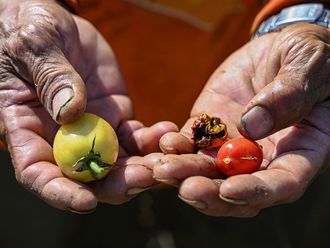Manila: The Royal House of Kiram — the nominal ruler of Sulu, said it has brought before the United Nations its grievance concerning its claim on the Sabah territory.
The family of Sulu Sultan Jumalul Kiram III held a press briefing near the Blue Mosque in Taguig City where they announced their move to bring their claim to Sabah before the UN through a letter.
“Actually, His Royal Highness has actually wrote the United Nations on this matter,” Dayang Fatima Celia Kiram wife and spokesman of Kiram III was quoted as saying in a report by radio station dzMM.
Fatima at the same time reiterated Kiram III’s call for the Philippine government to support the move.
“We are going to elevate this to the Filipino people because Sabah is not the Kiram property alone. This is the patrimony of the Filipino people... of the Tausug people and of the whole Sultanate of Sulu.”
The move will not be the first time that the Philippines had taken the issue concerning Sabah — an expansive territory rich in natural resources located in what is now known as Malaysia — before the UN. During the administration of President Diosdado Macapagal in 1962, the matter had been taken to that forum. Since then, the Sabah claim had slept in the dustbin of UN archives.
Sulu’s claim over the territory of Sabah was assigned by the Sultanate of Sulu to the Philippine government which it authorised to represent it before the UN.
During the press briefing, the Kiram family said they have issued orders to an armed group presently in Lahad Datu, Malaysia not to move from their area they are occupying.
The armed group, who called themselves the Royal Army of Sulu Sultanate, and comprising of some 200 gunmen, had arrived in Lahad Datu two weeks ago. They had engaged Malaysian forces in a stand off and reports said authorities in Kuala Lumpur had given the group until Tuesday to peacefully leave the area and go back to Southern Philippines’ Sulu and Tawi-Tawi which is just several hours boat ride away.
BOX STORY
The Jabidah Massacre
In 1969, then President Ferdinand Marcos authorised the covert training of Filipino Muslims, mainly from the Sama and Tausug tribes, for deployment to Sabah under an operations codenamed “Merdeka.”
The operation was exposed by then Senator Benigno Aquino II, the incumbent President’s father, and the recruits were summarily killed by government agents in what is now infamously referred to as the “Jabidah Massacre.”
The Jabidah Massacre served as the tinderbox that fuelled the Moro revolt in southern Philippines that led to the emergence of the Moro National Liberation Front and later on, the Moro Islamic Liberation Front.












